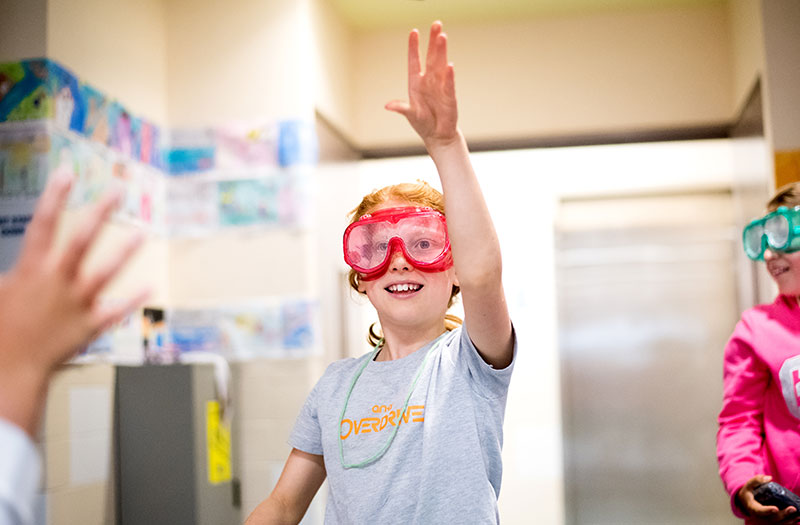Bacterial Biosensor Device
In this activity, students are asked to design a bacterial biosensor device on paper. Students are offered a scenario: they have a choice of two
In this activity, students are asked to design a bacterial biosensor device on paper. Students are offered a scenario: they have a choice of two
This is a great conclusion to a unit about cell biology, genetic engineering, or cellular engineering. Students are asked to program a robot to solve
In this activity, students select a model organism and brainstorm possible strengths and limitations of using this model in scientific experiments.
This activity allows students to explore cells in a new way. The set of protists used in this activity offer a wide range of motilities,
This is an activity that allows the instructor to identify any misconceptions about cells. It’s a great introduction into cells and the characteristics of living
In this activity students construct an analogy between the central dogma and a robot “running a program”. Students are first asked to place the central
This activity connects the engineered oil-eating abilities of microbes to large-scale bioremediation efforts. Students will observe microbes break down oil in water over the course
This activity introduces students to ethics and bioethics. Bioethics concerns some of the more difficult dilemmas and decisions facing scientists as science advances, particilarly in
This activity introduces students to ethics and bioethics. Bioethics concerns some of the more difficult dilemmas and decisions facing scientists as science advances, particularly in
This activity explores genetic engineering as a tool to construct new cellular organisms, usingthe pGLO Bacterial Transformation Kit from BioRad, but framing it as a
All of SEP’s programs are offered free-of-charge. To do this work, SEP must annually raise nearly $2 million. Every donation brings us closer to that goal and helps to make this important work possible.

As part of UCSF, SEP is a 501(c)3 non-profit. All donations are tax deductible to the fullest extent of the law. Please let us know if your company participates in a matching gift program so that we can extend the benefit of your generosity.